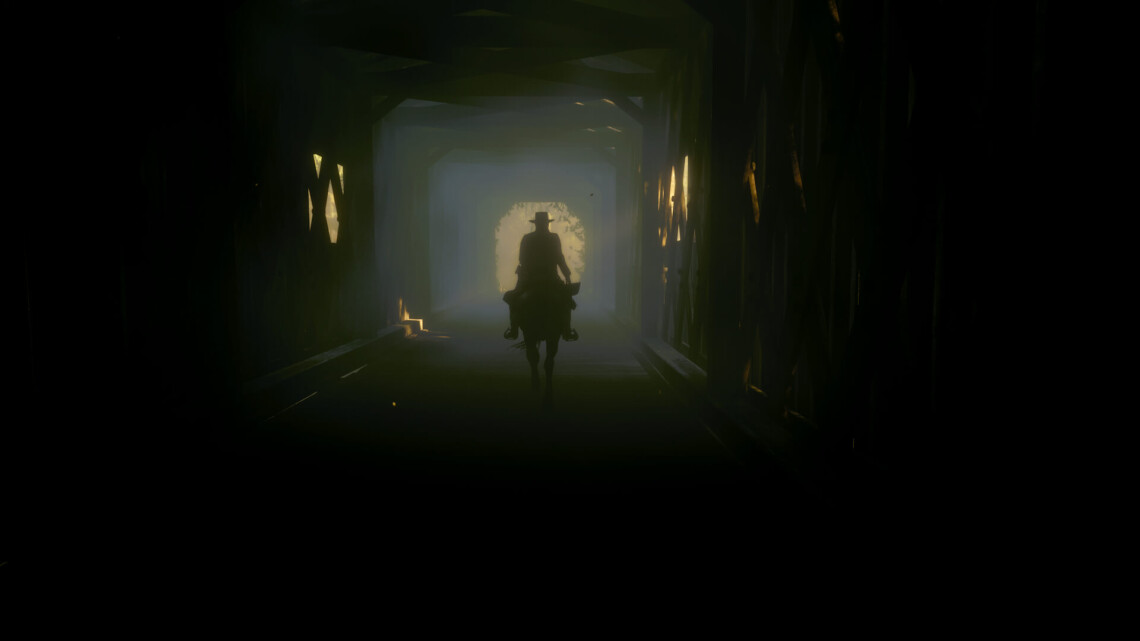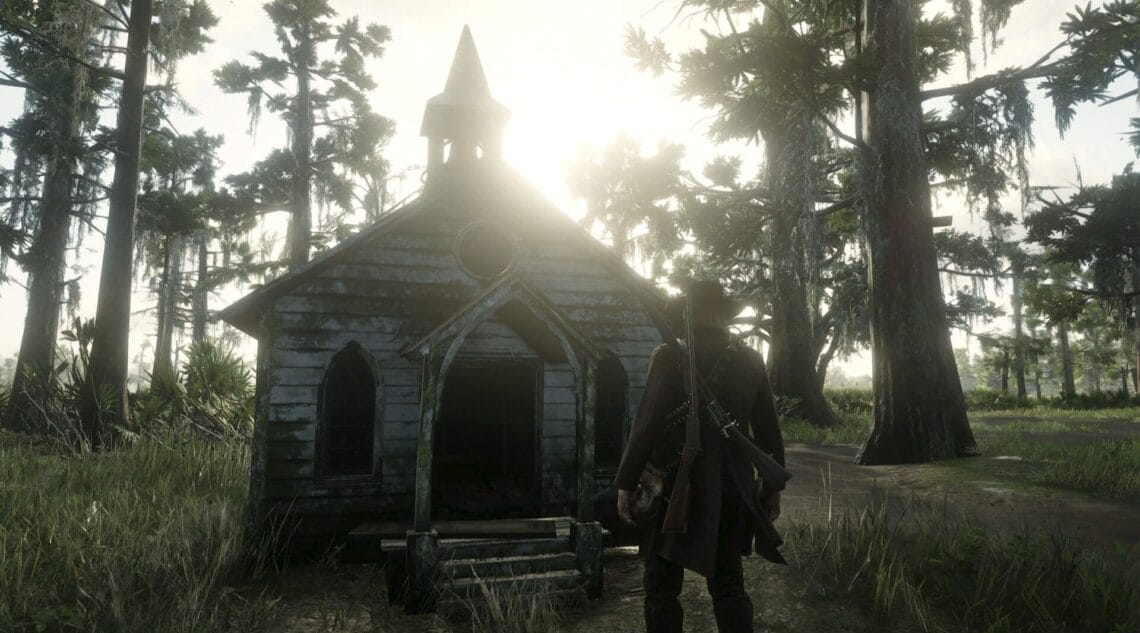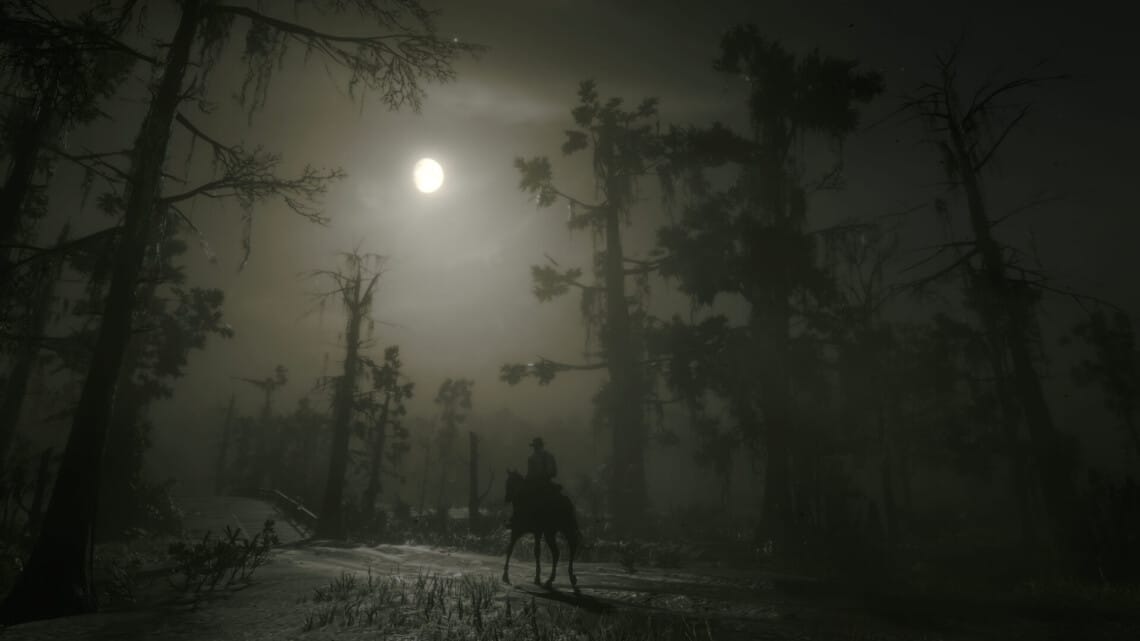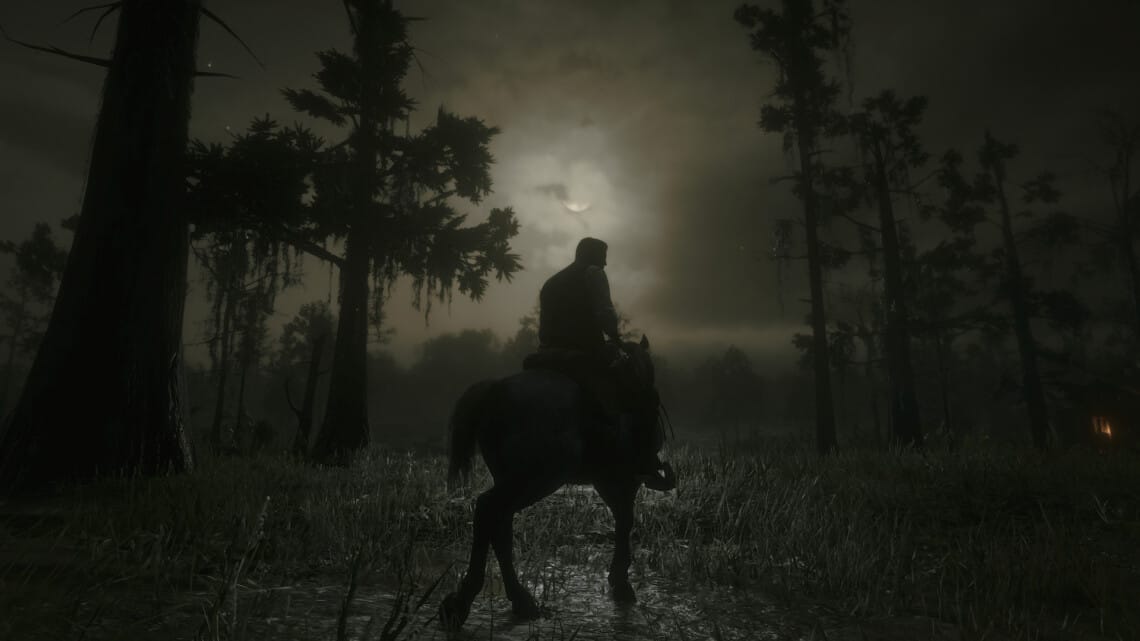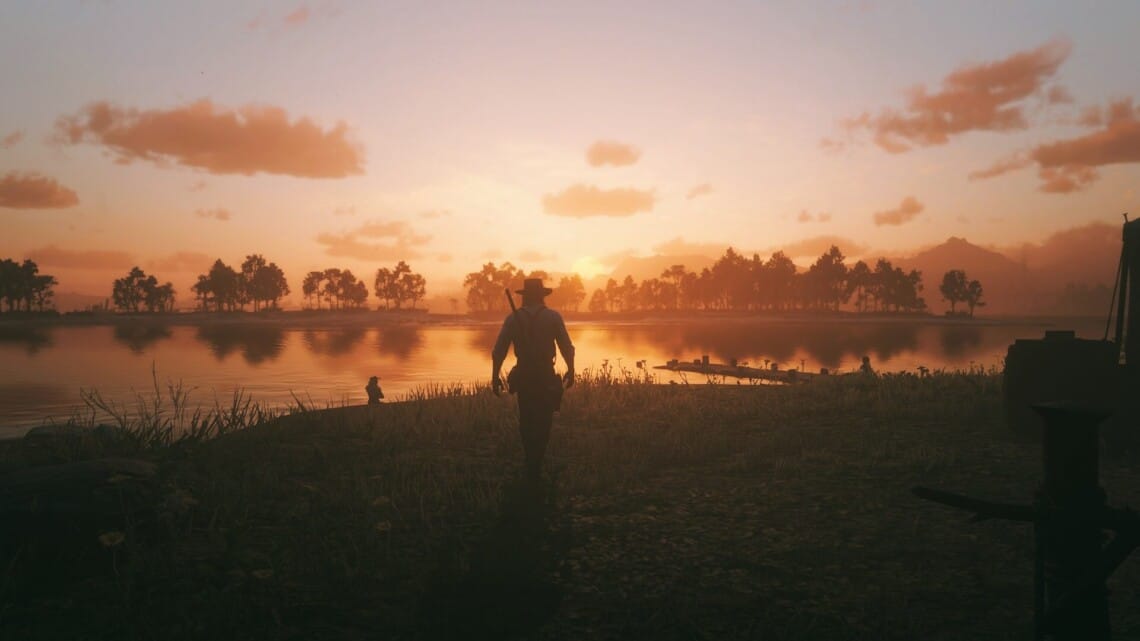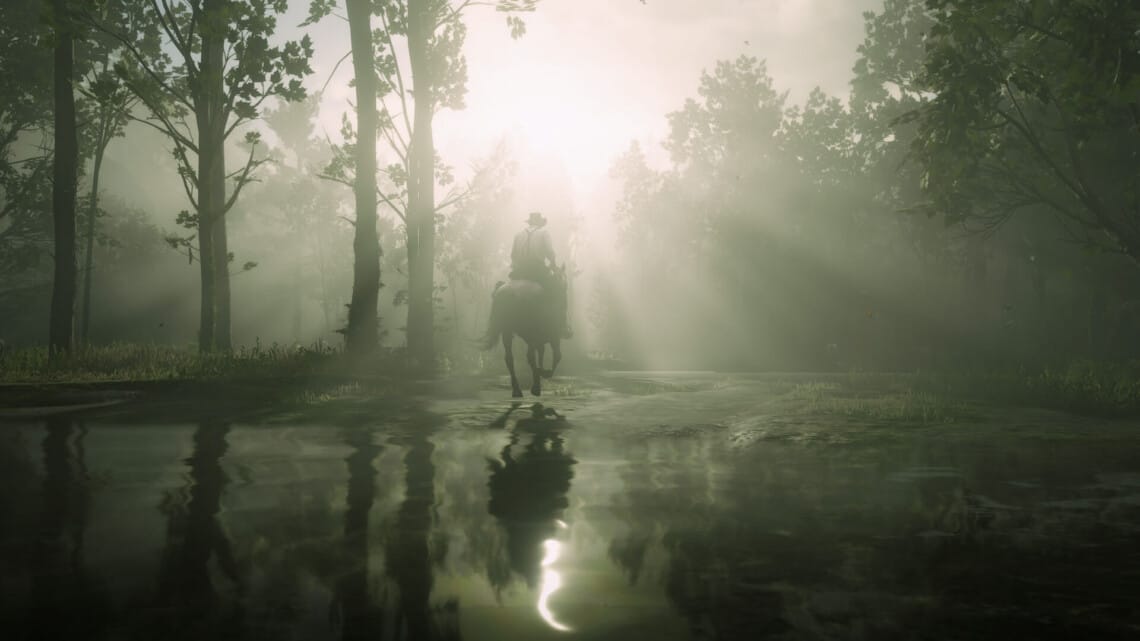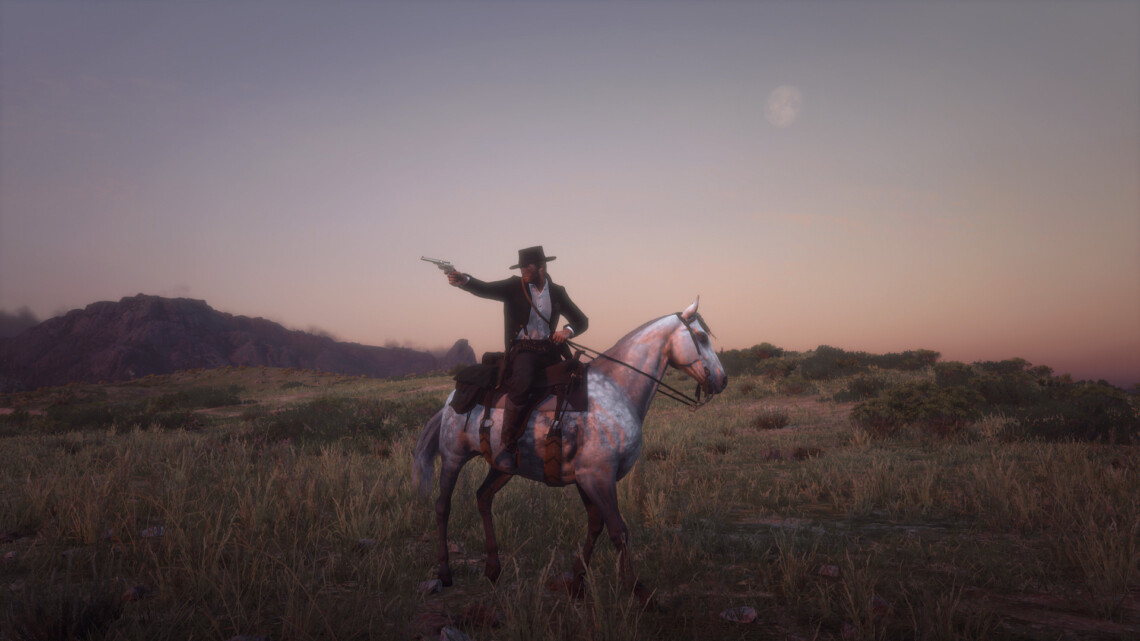Learn the story behind RDR2's Strange Statues, plus much more.
As should be apparent by now, RDR2’s use of literature ranges from deep and extensive to brief and glancing. Sometimes, the writers allude to a work broadly rather than dealing with its themes.
Allusions to William Shakespeare's The Tempest are among the most obvious references in RDR2 — and yet, other allusions to the Bard's work are so subtle we almost have to guess at them. The game doesn't make direct allusion to King Lear or Othello, but the influence of those dramas is clear. Those plays feature a scheming villain spitting poison in the ear of a noble-but-tragically-flawed leader and a loyal but hapless child or follower who dies as a result of the leader's weakness: a plot that RDR2 reworks beautifully. However, this is an influence felt, not named. Other Shakespearean works are alluded to more directly. We’ll begin by discussing…
Finishing our journey through the intertwined Eden and Hell of RDR2.
The relationship between RDR2 and the Bible is an odd one. The game seems thoroughly secular on the surface, but its ideas about sin and redemption are not unchristian — perhaps because it relies so much on Paradise Lost to shape it. But the use of that text doesn't entirely account for the use of Biblical material in the game, which indicates a broad familiarity with that body of work.
More allusions to Emily Brontë's Wuthering Heights in Red Dead Redemption 2, including themes, character and mission names, and more.
On the face of it, the writers' choice to use Wuthering Heights to shape the narrative of Red Dead Redemption 2 was a promising one. Emily Brontë’s 1847 novel, Sandra M. Gilbert and Susan Gubar explain, is “a radically corrective ‘misreading’ of Milton . . . with the fall from heaven to hell transformed into a fall from a realm that conventional theology would associate with ‘hell’ (the Heights) to a place that parodies ‘heaven’ (the Grange)” (189). RDR2 attempts a similar project, with Arthur’s fall into knowledge being not the path to sin, but to redemption.
The remaining allusions to King Arthur in RDR2 that didn’t fit into essays elsewhere: what's up with Kieran's beheading, why Arthur sees a deer in his honor visions, Pleasance, and much more.
At the same time as a version of the fall of King Arthur’s court unfolds, another allegory plays out in Red Dead Redemption 2: the quest for the grail. More than King Arthur, perhaps even more than Lancelot, Arthur Morgan resembles another character: Perceval, the grail knight.
It wouldn’t be much of an exaggeration to say that everyone in the English-speaking world, and much of the rest of the world besides, has heard of King Arthur and the Knights of the Round Table. But this statement is more vexed than it first appears. Which version of King Arthur have people heard of, and which versions of the knights?



